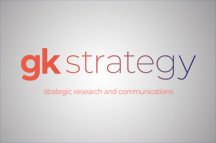It was during a press conference at the White House in June 2000 when the Human Genome Project, an international research collaborative, announced the first draft of a human genome had been sequenced, essentially mapping out the blueprint of our DNA.
“We now have the possibility of achieving all we ever hoped for from medicine.” – The then UK Science Minister, Lord Sainsbury
It was a landmark moment for medical research, with society stood on the brink of an era of personalised medicine that would change healthcare as we know it. Almost more remarkable was the speed with which it was achieved, a mere 50 years after James Watson and Francis Crick discovered the very existence of DNA itself.
Sequencing the first human genome cost about $1 billion and took 13 years. Fast forward two decades and today you can pay a commercial genomics provider less than $1000 and wait 2-4 weeks to have your genome fully sequenced.
The scientific community’s capabilities in and understanding of the field of genomics are developing at a blistering pace. Like other fast-moving sectors like tech, it is the government and regulators who are struggling to keep pace.
As the news broke that the Human Genome Project had achieve this historic milestone back in 2000, the then Prime Minister Tony Blair said, “We have to focus on the possibilities, develop them and then face up to the hard ethical and moral questions that are inevitably posed by such an extraordinary scientific discovery.”
Yet it is only now that we are really coming to terms with many of these legal and ethical questions. What happens to my genetic data once my DNA has been sequenced? Who has access to it? Will it be sold to pharma companies or used by insurance providers? All are valid and important questions for consumers using commercial genomics providers, but these are just the tip of the iceberg.
The House of Commons Science and Technology Committee, chaired by Norman Lamb MP, has a notable interest in the field. Last year it launched an inquiry to understand more about genomics and genome editing, noting parliamentary understanding of the field was somewhat lacking.
Now it is delving deeper beneath the surface to explore these legal and moral conundrums in more detail, launching a new inquiry on 4th March to assess the regulations or standards that commercial genomic tests are currently subject to, and if any new or strengthened regulations should be introduced.
For providers of commercial testing, this is a golden opportunity to shape the conversation and ensure that what is a complex and emerging field, is understood by policy and decision makers.
It was said at the time that “the deciphering of the book of life [is] a milestone in science”. The challenge for government is governing how and by whom it is read.
by Andy Peel












